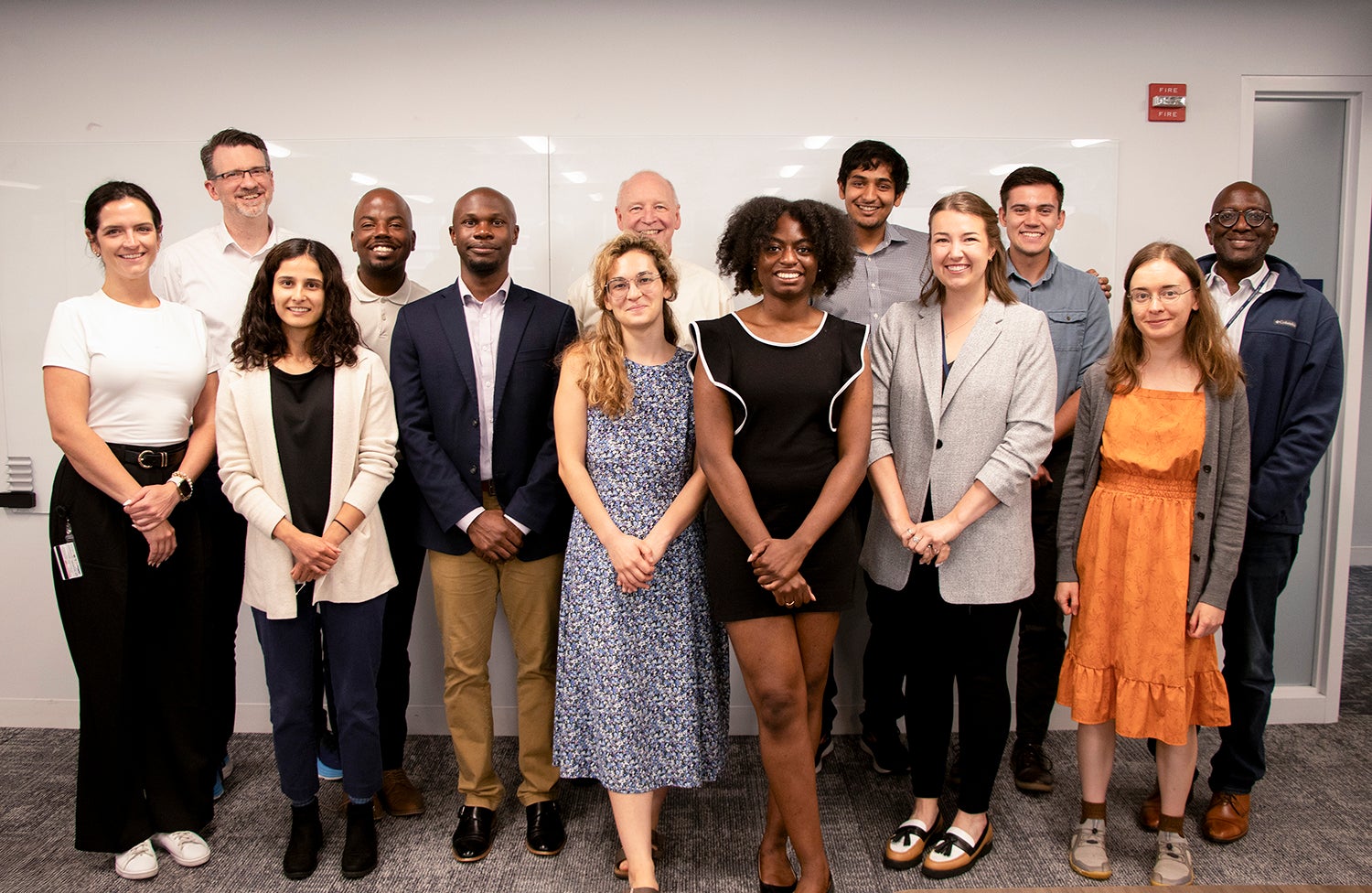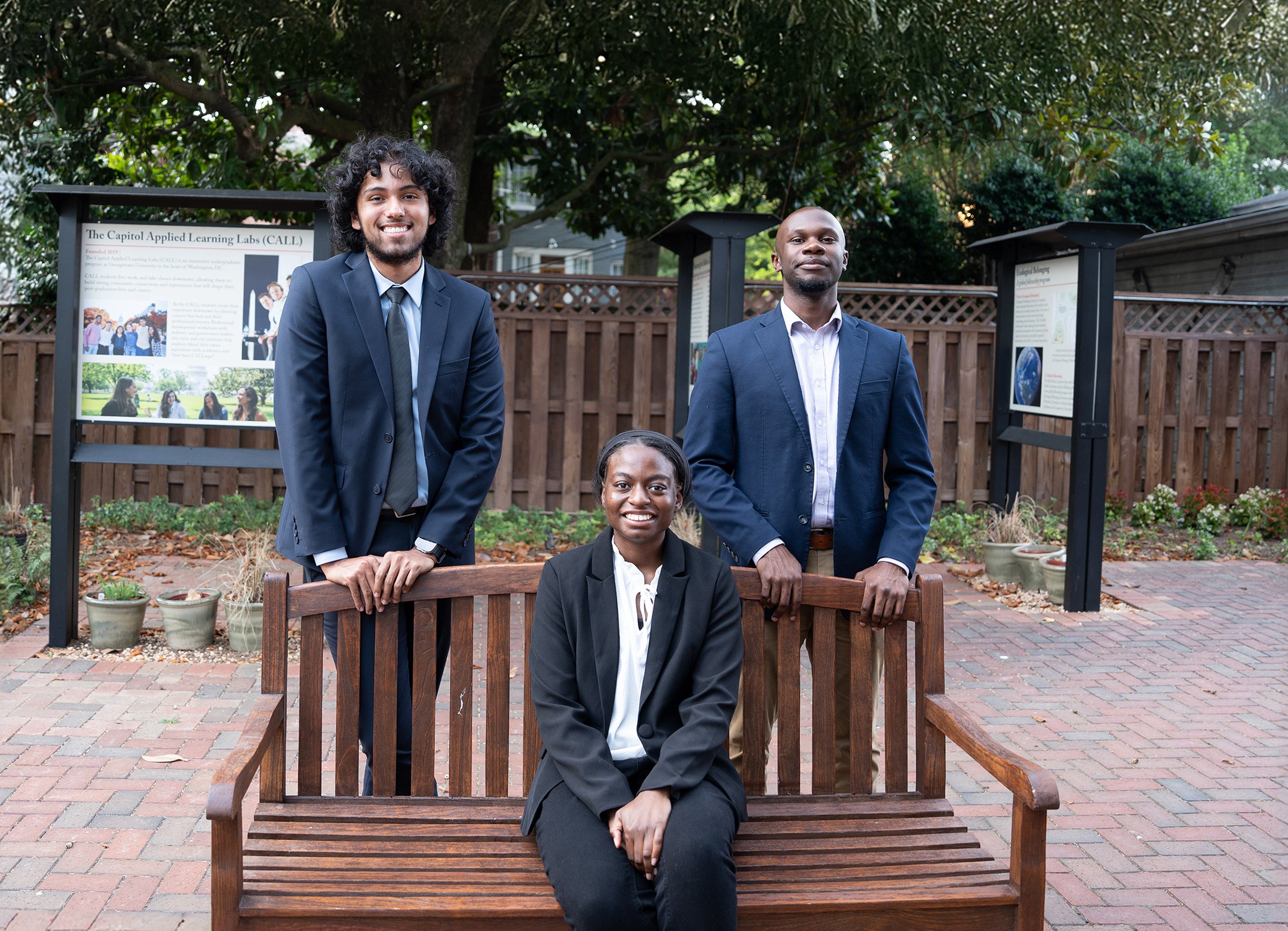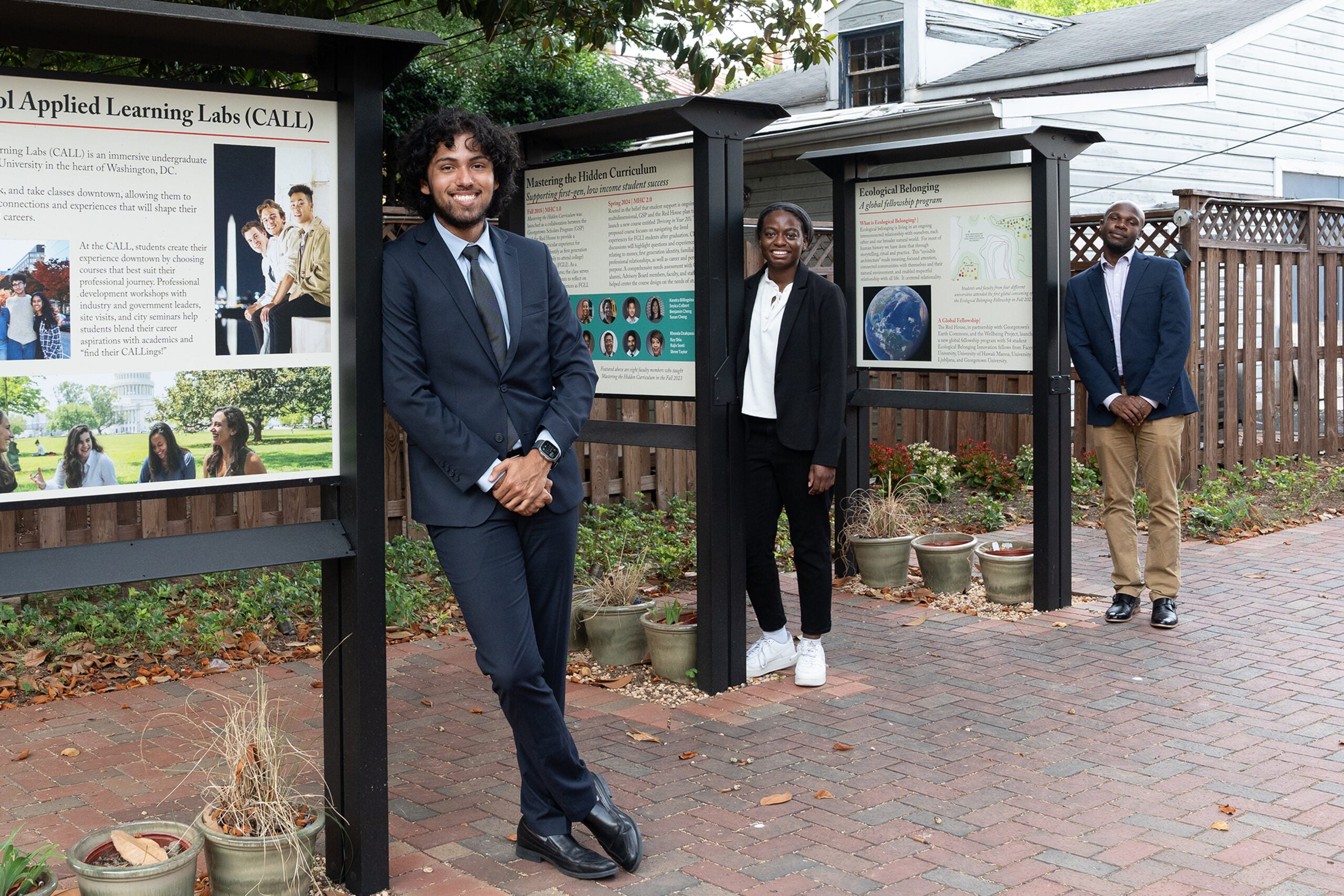
This summer, as thousands of interns flooded Washington, D.C., for their first taste of politics and policy, three students — Jordan, Charliste, and Hipolito — embarked on a unique journey. As participants in the Center for Security and Emerging Technology (CSET) at Georgetown University’s Inaugural Summer Internship Program, they delved into the complex world where technology and national security intersect.
A Bold Initiative
CSET's internship program, made possible by grants from the Hewlett Foundation and the McGovern Foundation, was designed with a clear mission: to bridge the gap between technical expertise and policy application. By focusing on STEM majors from Historically Black Colleges and Universities (HBCUs) and Minority Serving Institutions (MSIs), CSET aimed to diversify the field of emerging technology policy and cultivate the next generation of leaders.
As artificial intelligence and other emerging technologies continue to advance rapidly, the need for diverse perspectives in tech policy has become increasingly apparent. CSET's internship program represents a step toward addressing this need, providing valuable experience to students from underrepresented backgrounds in this critical field.
This internship program is part of our commitment to fostering diverse perspectives at the critical intersection of technology and policy.Dewey Murdick, CSET's Executive Director
"This internship program is part of our commitment to fostering diverse perspectives at the critical intersection of technology and policy," said Dewey Murdick, CSET's Executive Director. "By engaging brilliant STEM minds from HBCUs and MSIs, we're not only enriching our research but also opening new career pathways for these promising students."
Beyond Expectations
For the interns, the experience was transformative. "Unforgettable and truly one of a kind," Hipolito Calero, a student at Florida International University, said of his summer. "I was able to learn, grow, and experience so much of how CSET works and its impact on our nation throughout my time there."
The nine-week program was intensively designed to immerse the interns in the world of technology policy. They participated in over 25 tailored professional development sessions, conducted simulated policymaker briefings, and gained invaluable exposure to the Washington D.C. policymaking landscape.
But it wasn't just about absorbing information. Each intern undertook a substantial research project, contributing to CSET's mission in meaningful ways.

Innovative Research
Jordan Monts, a student at Florida Agricultural and Mechanical University (FAMU), developed a Python-based data collection pipeline to gather and process web data, supporting ongoing research initiatives at CSET. His project demonstrated how computer science skills could be directly applied to policy-relevant research.
Charliste Hampton, a senior at Spelman College, delved into the intersection of artificial intelligence and computational biology. Her research highlighted the potential of AI to accelerate medical breakthroughs and improve human health.
Hipolito Calero analyzed China's AI governance proposals, providing insights into how one of the world's leading AI powers approaches the regulation and development of this critical technology.
Impact and Growth
The impact of the internship extended far beyond the completion of research projects. For many of the interns, it opened their eyes to new career possibilities.
"I feel that CSET has prepared me for my professional future in many ways, the main one being exposure to possible career choices that aren't in the direct path of our schooling program," reflected Jordan. "I would have never thought policy and computer science would go together."
Charliste echoed this sentiment: "This internship provided me with a nice foundation," she said “I think this will help me show that my practice of medicine is not just to help individuals but also to help people on a global scale."

A Lasting Legacy
As the inaugural internship program concluded, its success was evident not just in the research produced, but in the transformed perspectives of the interns and the enriched environment at CSET.
The benefits and opportunities that an intern gains are super supportive of a future career in this field or others like it. It is an experience unlike any other that I have encountered.Hipolito Calero, CSET Inaugural Intern
"The benefits and opportunities that an intern gains are super supportive of a future career in this field or others like it," Hipolito said. "It is an experience unlike any other that I have encountered."
For CSET, the program represents a significant step toward its goal of diversifying the field of emerging technology policy. By providing hands-on experience to students from underrepresented backgrounds, CSET is helping to shape a future where diverse voices contribute to critical technology policy decisions.
Going forward, the success of this inaugural program sets a promising precedent. It demonstrates the immense value of investing in diverse talent and the potential for programs like this to shape the landscape of technology policy for years to come.
"We hope the internship program continues well into the future" CSET’s Director of People and Operations, Olivia Albrighton-Vanway, said, “not only because we've seen the real-world, positive impacts it has on these talented students' lives, but because it helps us meet our mission in a unique way. By intentionally providing the resources and platform to STEM students who may not have otherwise known a career in this field is possible, we're both training the next generation of decision-makers and actively shaping it."
| Read the Intern Blogs |
|---|
| • Assessing the Next Frontier in Medical Research: Artificial Intelligence and Computational Biology | Charliste Hampton • Building a Data Collection Pipeline | Jordan Monts • An Analysis of China’s AI Governance Proposals | Hipolito Calero |


